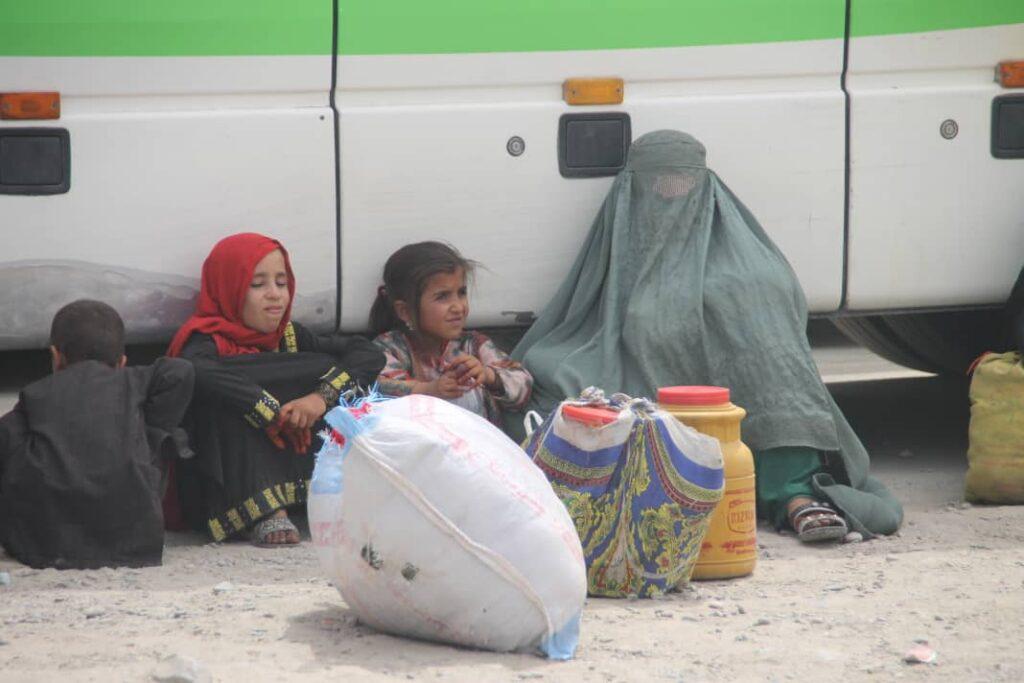KANDAHAR CITY (Pajhwok): Mohammad Daud, an 8-year-old boy, is one of thousands of children begging daily on streets from dawn to dusk in sweltering heat in Kandahar City.
Daud came to the provincial capital from restive Arghistan district along with his five-member family a year ago as a result of fighting.
Daud’s life did not improve a jot even after he shifted to the provincial capital. Instead his misery deepened, forcing him into begging.
The boy fell on excruciating days with the death of his father in a bomb explosion. In quest of a better life, his family moved from Arghistan to Kandahar City.
His worn-out and soiled clothes tell the agonising and unending tale of Daud’s poverty. He extends his hands to every person and car passing by in the hope of getting a few afghanis and handing them over to his mother in the evening.
He collects 50 afghanis from morning to evening and gives it to his mother who buys dried bread with it. He has two brothers who also beg. Daud’s sister works along with her mother in houses of the well-heeled.
"My mother tells me not to come home without earning 50 afghanis. Sometimes, I manage this amount and sometimes I fail,” he explains.
When he sees better-off children, the boy wishes that his father was alive and he could also wear neat clothes like them, play games and go to school.
Daud is not the only boy pushed into this plight by poverty, war and other problems. Thousands of other Afghan children are in a similar predicament.
Mohammad Tahir, 12, works at a carpentry shop in the second police district of Kandahar City.
The minor says he leaves home before sunrise for work and returns in the evening, with 100 afghanis in his pocket.
The boy lost his father to fighting in Maiwand district two years ago. He has to work to eke out a living for his family -- two sisters and a brother.
Sultan Mohammad Ayal, head of the Kandahar Independent Human Rights Commission, told Pajhwok more than 20,000 children in the province were forced to work hard and beg on streets.
Most of the children do eight types of hard work, including construction, garbage collection, begging and other tough things.
Ayal alleged child sexual abuse had also increased but there were no exact figures yet. The number of missing and abducted children also increased this year, the official said, without giving specific figures.
One main cause of the problems being encountered by children is the ongoing conflict, resulting in poverty, unemployment, addiction, parental neglect and other issues.
“Unfortunately, this year, dozens of children have been killed and injured in fighting, blasts and other incidents, making them the main war victims,” he added.
The rights campaigner called on the judiciary to deal with criminal cases involving child abuse in a fair and transparent manner.
Acting Director of Labour and Social Affairs Mukhtar Ahmad Peroz said an accurate survey put at about 20,000 the number of child labourers and baggers in the province.
He added the intensity of fighting, displacement due to war, drought and other problems had pushed up the number.
"Unfortunately, children are also being dragged into war and such cases are seen on the warring sides and have not been eradicated yet," he said.
Last year, 45 children were killed and injured in fighting in Kandahar.
"Unfortunately, most of government funds are spent on war and rulers are unable to reach out to such children," he deplored.
There were two government and two private orphanages in Kandahar, providing care and education to homeless children, the official said.
On the other hand, about 100,000 children in the province are deprived of education due to war and other issues.
Nazar Mohammad Samimi, spokesman for the education department, said although the situation in the province had improved, 5,000 children were still out of school -- mostly in remote areas.
According to him, the problem of girls’ education in districts is a serious challenge. They do not have access to education and many of them drop out of school.
sa/mud








GET IN TOUCH
NEWSLETTER
SUGGEST A STORY
PAJHWOK MOBILE APP